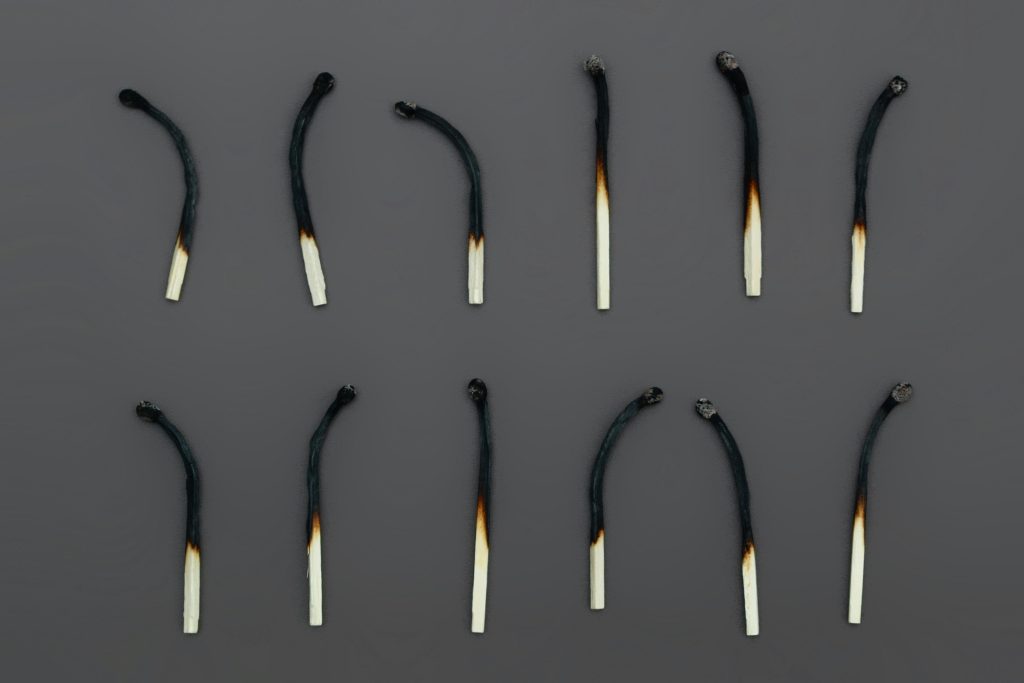Why Keeping It All Together Is Costing You More Than You Think
It’s a typical Thursday morning. You’re trying to get an anxious teenage child out the door for
their GCSE revision session while thinking about how to reply to that work email on the restructure. You’ve got to remind your oldest about the uni application. You ignore the state of
the kitchen and rush out of the house with that horrible nagging sense that you’ve forgotten something important.
Oh, and your mum needs a lift to her physio appointment this afternoon, which clashes with
your performance review.
It’s just a typical Thursday, though.
If you’re a woman in midlife, especially one in a leadership role, the chances are your to-do list
isn’t just long, it’s also overloaded with tasks that you never manage to get around to.
And it’s not just the tasks themselves. It’s the thinking, the planning, the constant reminding, the
worrying, the soothing, and the anticipating that also weigh you down.
You feel like you’re constantly treading water, balancing your family responsibilities with
workplace pressures, delightful hormonal shifts that you cannot control, as well as societal
expectations, all while trying to keep up the appearance of a calm, capable adult who is in
control.
Welcome to the mental load of a midlife woman.
Chances are, you’re carrying far more than you realise.

The Midlife Juggling Act.
This is about being more than just busy. It’s the invisible weight of managing not only your own life, but often the emotional and logistical needs of those around you.
Midlife women are often managing multiple fronts: big jobs that demand decision-making and emotional resilience, teenagers navigating academic pressure, ageing parents with increasing needs, and households that somehow still expect them to remember birthdays, buy toilet paper, and fill in school forms. All of them.
You sit bolt upright at 3am, replaying a difficult conversation at work, trying to remember that you have to be out of the house on time as your child has an examination to attend but also to hold some space for the child because you remember the stress of sitting in that vast exam hall, too.
You also feel guilty because you are never fully present anywhere in your life. Not at work. Not at home. Not in your friendship group. Not with meeting your own needs, because they have to get put to the bottom of the pile for now.
This is the cognitive cost of having to hold everyone and everything around you together.
And that’s just your home life. You are also expected to manage your team’s well-being whilst silently dealing with the delight of hormonal fluctuations.
You are expected to be the calm in the storm whilst your own storm is raging within.
Studies show that women, especially those with caregiving roles, are disproportionately affected by this form of cognitive and emotional labour. And when you layer leadership responsibilities on top of that, the toll of this mental load can become unsustainable.
Midlife: The Crossover Pressure Peak
Midlife isn’t a crisis. It’s a convergence. For many women, it’s the point where multiple life demands peak all at the same time:
- Teenage children who are navigating exams, identity formation, and emotional turbulence (with you as their primary anchor)
- Ageing parents who may need increasing care or support
- Workplace responsibilities that aren’t easing up, particularly if you’re in a leadership role where you’re expected to stay calm under pressure and navigate changes with aplomb and let’s face it, the public sector knows all too well, especially at the moment, is change. Whether it be the change of political leaders, LGR or the ongoing NHS restructuring, without ever spending the time to recalibrate.
- Physical changes, from brain fog and sleep disturbances to anxiety triggered by perimenopause and hormonal shifts, as well as the natural changes in your body that no one prepared you for. The fact that you are never really sure how you will feel physically or mentally day to day, and you can’t trust your mind and body anymore to just crack on in the way you used to be able to.
At this stage of life, many women realise they’ve been functioning at full capacity, and beyond sometimes, for decades, but have rarely paused to consider what they actually need. It’s why so many women are teetering on the brink of burnout.
Exam Season: Another Pressure Peak
Right now, exam season is intensifying the emotional temperature in many households. It is the perfect example of how this invisible mental load sneaks into your life. While the media focuses on student stress, the school piles on the academic pressure, what often goes unnoticed is the emotional labour mothers provide during this time.
You’re monitoring moods, preparing meals to help them focus, buying in the snacks they like to bring them some comfort, making room for their tears and frustrations, and adjusting your schedule so you’re home if they need a pep talk. All the while, you’re trying not to transfer your own tears of stress and frustration, even though your plate is already overflowing.
Many midlife women are doing all of this alongside managing teams, deadlines, budgets, and broken systems.
If a child’s exam performance was based on the emotional effort of a midlife woman, they’d all be walking away with straight A*s.
Midlife Mental Mountain.
How often have you said or thought: I just need to get through this month. This term. This phase. This busy period. The one that started in 2014.
Women often just grit their teeth and carry on. Just get it done. Because who else is going to do it? It’s just easier than expecting/asking/relying on someone else to do it.
But this perfect storm convergence of health, hormones and havoc compounds these feelings.
We get snappy with our partners. We forget even the most mundane daily tasks (and convince ourselves it’s early-onset dementia). We’re constantly exhausted, even if we go to bed early. We feel undervalued by a demanding household or a challenging boss. We feel guilty because we wish we could just have a day to ourselves, in utter peace.
We wonder if we are the only ones who feel like this.
(You’re not, by the way.)
This constant overthinking, irritability or emotional numbness leads to a creeping sensation that something has to give.
Or break.
You just hope it isn’t you.
For many women, burnout doesn’t look like collapse. It looks like competence. Like holding it together while quietly unravelling.
This mountain of midlife mayhem can lead to burnout. Research consistently shows that 71% women perform far more of this mental labour than men (45%), leading to higher stress levels, reduced life satisfaction, and negative impacts on relationships.
This is the mental load of carrying too much, for too long, without adequate support.
So what can you do about it?

How to Offload the Mental Load.
Many high-performing, high-capacity women default to doing everything themselves because it’s faster, easier, or expected of them.
They worry about handing off a task in case it isn’t completed. Or worse, someone drops the ball, and it falls on the midlife woman to fix.
It becomes another task on the to-do list. Better just to get it done yourself, right?
But when you’re smack dab on the peaks of midlife mental mountain, you can’t keep carrying everything.
Nor should you.
It’s not about dropping all the balls, either. It’s more about choosing which ones are truly yours.
Here are some questions to think about to help you find the answer:
What are you still doing that could be delegated, delayed, or dropped altogether?
- Are you proofreading your teen’s coursework because they forgot to plan ahead?
- Are you volunteering for school or workplace initiatives that drain you?
- Are you answering emails at 9:30 p.m. because no one else will?
- Are you just hopping on one quick meeting, even though you are supposed to be on leave?
Midlife offers an opportunity to re-evaluate the stories you’ve been telling yourself. Stories like:
- If I don’t do it, no one else will.
- I need to be strong for everyone.
- There’s no point asking for help, they won’t do it like I would, it’s quicker for me to do it myself
If I don’t do it… does it really need doing?
I need to be strong for everyone… You are strong. But so are other people. Can you lean on their strength for a while?
There’s no point in asking for help… What would happen if they did get it wrong? What if they got it right? Even if it is different to how you would do it
These beliefs might have helped you survive the early years of parenting or the climb up the career ladder.
But they might now be keeping you stuck in overfunctioning, burnout, and quiet resentment.
There is strength in seeking support, setting boundaries, and re-evaluating what’s really yours to carry. This is where coaching can make a transformational difference.
Ask yourself:
- What am I holding that I could delegate or drop?
- Where am I most depleted, and what would nourish me?
- What needs to change for me to keep leading the team forward, or how do I leave this job well?
Midlife isn’t the end of your story. But it can be the moment you take authorship of your life and take things in a new direction.
Mastering Midlife Mayhem
If you’ve read this blog, nodding in agreement in places, there might be a tendency to try to overhaul your life in one go. That isn’t necessary, and will very likely add to your mental load.
However, there are some steps you can take to lighten the mental load.
Think about the invisible work you’re doing for others. Once it’s visible and acknowledged, it becomes something you can negotiate.
Boundaries are your friend. They can feel selfish to put in place, more so when you have to stick to them, but they can help ease the mental load and help you feel more in control. Build your boundaries like you would build a business strategy: with purpose, clarity, and planning.
Let go of your perfectionism. Good enough is good enough. Beating yourself up over something that isn’t quite as perfect as you’d held in your mind is counterproductive.
Do things to protect your mental wellbeing. Do this today. Drinking a cup of tea mindfully (One that’s still hot might be a real treat!) Listen to a song. Go for a walk in nature. Do some breathwork. These are all small habits that you can stack onto other tasks. Even just a few minutes a day can have a cumulative effect. Take your own mental health seriously.
Talk to someone. Externalising your thoughts, whether it’s a coach, therapist, or trusted friend, can prevent the mental noise from becoming overwhelming.
You’re not just the scaffolding for other people’s wellbeing.
You matter, too.
Ready to Lighten Your Midlife Mental Load?
We’ve talked through how midlife brings a perfect storm of challenges, often with little meaningful support for women navigating this transformative phase. You might be tempted to just keep on keeping on, to push through it all because that approach served you well before. But remember, your mental load isn’t a personal failing. It’s the result of outdated gender expectations, toxic workplace cultures, changing policies, and the complex demands of family life.
You don’t need to keep holding everything together anymore. You get to choose. This is your moment to decide what deserves your energy, what can be released, and what needs to change. Even if you’re not yet clear on exactly what changes you want to make, you simply know something needs to shift.
You don’t have to figure this out alone.
If you’re carrying a mental burden that feels unsustainable, I invite you to schedule a complimentary call. Together, we’ll create a safe, judgment-free space to explore your challenges and envision what your next chapter could look like when you finally grant yourself permission to lead, live, or leave on your own terms.
Midlife Career Changes: Lead Well or Leave Well
As a coach working with midlife women in leadership roles, one of the most powerful turning points I see is when women permit themselves to stop running on autopilot and instead ask:
- Do I still want this role?
- Am I leading from strength or survival?
- What would it look like to lead well, not just cope?
- What would it mean to leave well and choose something that aligns with who I am now?
These are not easy questions. But they are liberating ones. Together, we’ll explore whether it’s time to lead well or leave well and how you can do either with intention, confidence, and support.
Book a call or get in touch HERE



